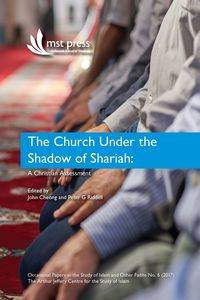The Church under the Shadow of Shariah
- A Christian Assessment
In the 21st century, the expression, “Shariah” – as in “Shariah law” and “Shariah finance” or “Islamic banking” – is heard with increasing frequency (Hefner 2011, Sloane-White 2017). It is important to be clear on just what Shariah is, particularly since some Muslim activists are increasingly promoting it around the world.1
The prolific Western scholar of Islamic law, Joseph Schacht, once described the Shariah as 'the core and kernel of Islam itself' (Schacht, 1974:392). The concept appears obliquely in the Qur’an at verse 45:18: “Then We put thee on the (right) Way of Religion [Shariah]: so follow thou that (Way), and follow not the desires of those who know not”. This passage underpins the common Muslim claim that Shariah law is divinely sourced, fixed and immutable, a gift to humanity from Allah, designed to show Muslims how to live and govern correctly.
Of course, there are different schools of legal interpretation. By the middle of the eighth century A.D., several had emerged in the Muslim Abbasid Empire. Of these, four survived among majority Sunni Muslims: the Hanafite, Malikite, Shafi’ite, and Hanbalite schools, the last being the most conservative/literalist. Further schools emerged among the minority Shiite Muslims, and several are in play today, as explained in Anthony McRoy’s paper on “The Iranian Church under the Shadow of Shi’a Shariah”.
Even a cursory look at Shariah legal codes shows that they are marked with inequality and excess. Consider first, inequality; in Shariah courts, “all jurists, court officials and the judge must be Muslims; non-Muslims are not allowed to take part in any way. No woman may become a judge” (Solomon ' Wakeling, 2009: 7).
EAN: 9780987615459





